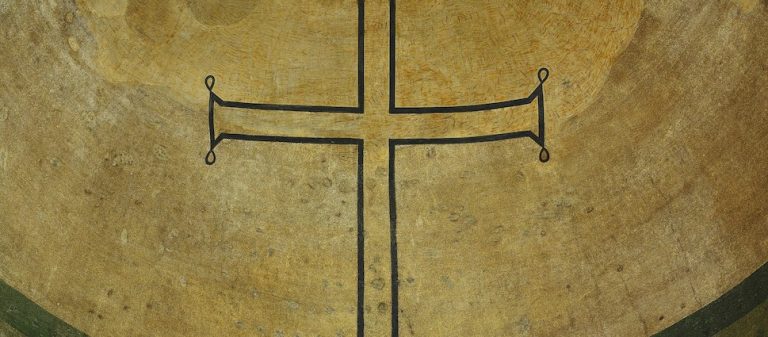

In this installment of our series (see #1, #2), I want to turn our attention to one theological use of the doctrine of union and communion with Christ. This doctrine provides the framework to understand the proper role of faith in justification, and thereby avoid the pitfalls of Antinomianism and Arminianism.
The Antinomian position is that faith is not a condition or cause of justification in any sense. It is not an instrumental condition or cause. It is not a necessary condition (conditio sine qua non). It is not a requirement or prerequisite. Faith is not unto justification in any sense. In fact, it doesn’t even precede justification but follows it and is simply an acknowledgement and awareness that one is justified. As Tobias Crisp once put it: “We do not believe that we may be justified; we do believe, and truly believe when we are, and because we are justified.”
How then does the Antinomian (or “high Calvinist”) understand the various biblical passages that speak of justification by faith? The answer is that these passages refer to the justification that takes place in one’s conscience (in foro conscientiae) and not to the justification that takes places in God’s tribunal in heaven (in foro Dei). Justification by faith in this sense is analogous to a criminal receiving his official certificate of pardon that had previously been signed by the king. The pardon is complete when signed by the king. Therefore, receiving the certificate of pardon does not lead to pardon but knowledge of it. Likewise, faith is not necessary for justification but for knowledge of it and also for one’s comfort and joy.
The doctrine of union and communion with Christ provides a necessary corrective to this view. Salvation is in Christ and in order to be saved a person must first be united to Christ. Richard Sibbes wrote: “For whatsoever Christ hath done, it is nothing to me till there be a union.” Or as Thomas Jacomb put it, “without union with Christ there is no justification, no pardon, no reconciliation, no adoption, no salvation by him.” And union with Christ, as we noted in a previous article, is by faith. Saving faith is the means by which we are joined to Christ and commune in Christ’s justification. Consequently, faith is a necessary condition for justification. The Westminster Larger Catechism says that God provides and offers Christ to sinners, “and life and salvation by him; and requiring faith as the condition to interest them in him (WLC 32, emphasis mine).” Similarly, Q&A 71 says that faith is required “for their justification” and Westminster Confession of Faith 11.2 says that faith is “the alone instrument of justification.”
The Arminian position is the polar opposite of the Antinomian position in that faith plays an extremely important role in justification. Faith is the very grounds of a person’s justification. Justification by faith is akin to justification on account of (or because of) faith. According to John Ball, the German-Dutch Remonstrant theologian Conrad Vorstius and his followers taught that faith (by which they meant repentance, conversion and new obedience) “is accounted for righteousness, that is, in the place or stead of legal righteousness or exact obedience, though it be not so indeed.” Similarly, the puritan Daniel Williams argued that the Dutch Remonstrant theologian Philipp van Limborch taught that faith itself is imputed for righteousness. More specifically, God graciously reckons imperfect obedience which flows from faith as if it were perfect. Obedient faith is like a fraction of a payment owed to a creditor, who upon receiving it graciously forgives the rest of the debt, considering him to have paid the whole amount. The Canons of Dort described the Arminian view thus: “…God having withdrawn his demand for perfect obedience to the law, counts faith itself, and the imperfect obedience of faith, as perfect obedience to the law, and graciously looks upon this as worthy of reward of eternal life.” The chief biblical support for this view is Romans 4 (vv. 5, 9, 11, 22, 24), which says that faith is “counted to him as righteousness.”
Once again, the doctrine of union and communion with Christ helps us see correctly the role of faith in justification and understand what Paul is saying in Romans. Paul’s statement that faith is counted as righteousness must of course be understood in light of what he says elsewhere. As John Ball noted, when we consider that Christ became to us righteousness (1 Cor. 1:30), that by the one man’s obedience the many will be made righteous (Rom. 5:19), and that Christ is the end of the law for righteousness to everyone who believes (Rom. 10:4), we must conclude that “Christ is the meritorious and material cause (so to speak) of our Justification, faith the condition and instrument, whereby we receive Christ made of God our righteousness.”
Paul’s comparison of the two Adams and our union and communion with them in Romans 5, according to John Ball, reinforces this conclusion (Covenant of Grace, 67). Even as condemnation came to us through Adam’s one sin, so justification and life comes to us through Christ’s one act righteousness. Notice that Adam’s one sin is not compared to our act of faith but Christ’s one act of obedience. The ground of justification, therefore, is not our faith but Christ’s righteousness. What then is the role of faith with respect to justification? At this point the distinction between union and communion with Christ is instructive. We were in Adam by a natural union and the fruit of that union was “communion with him, in the participation of his transgression.” Now we are in Christ by a spiritual union established by Spirit-wrought faith, and the fruit of that union involves “participation of his righteousness.” Faith is thus comparable to natural union with Adam, and not the fruit (communion) of the union with Adam. It is therefore not the reason or grounds we are justified even as the natural union with Adam is not the reason or grounds we were condemned. Faith is but the means by which we embrace Christ. And since faith is “only the hand whereby we put on Christ both as a justifier and sanctifier, then it is not the garment of righteousness, wherewith we are clothed.” Faith, therefore, justifies or is counted as righteousness only insofar “as it is the bond of our strictest union with Christ, by which all things that are Christ’s become also ours” (Herman Witsius, Economy of the Covenants, 1:415).
























